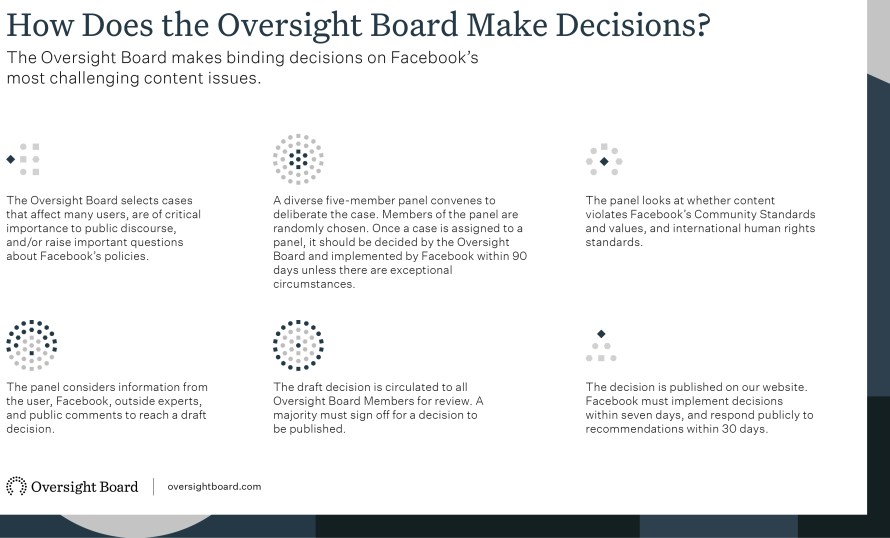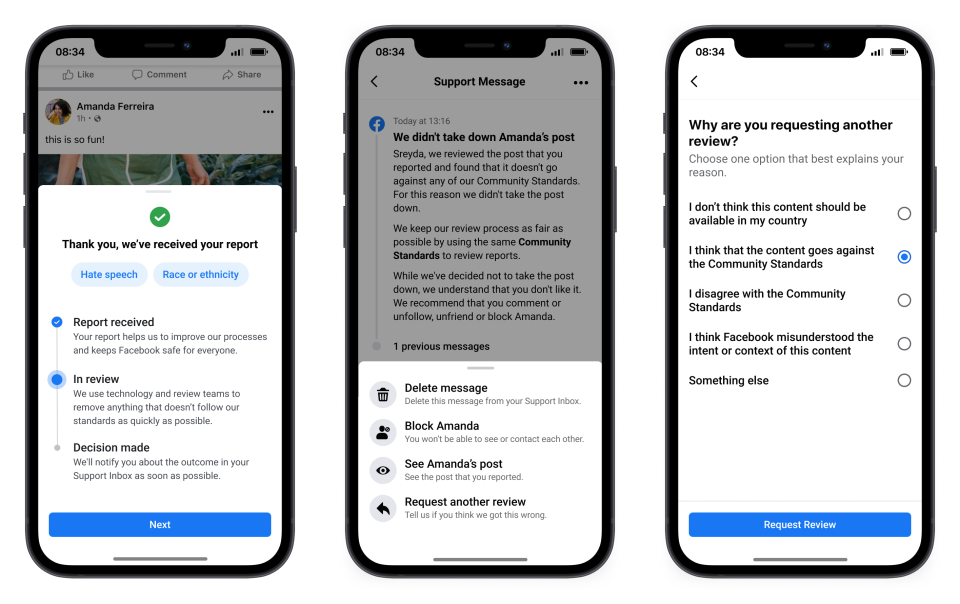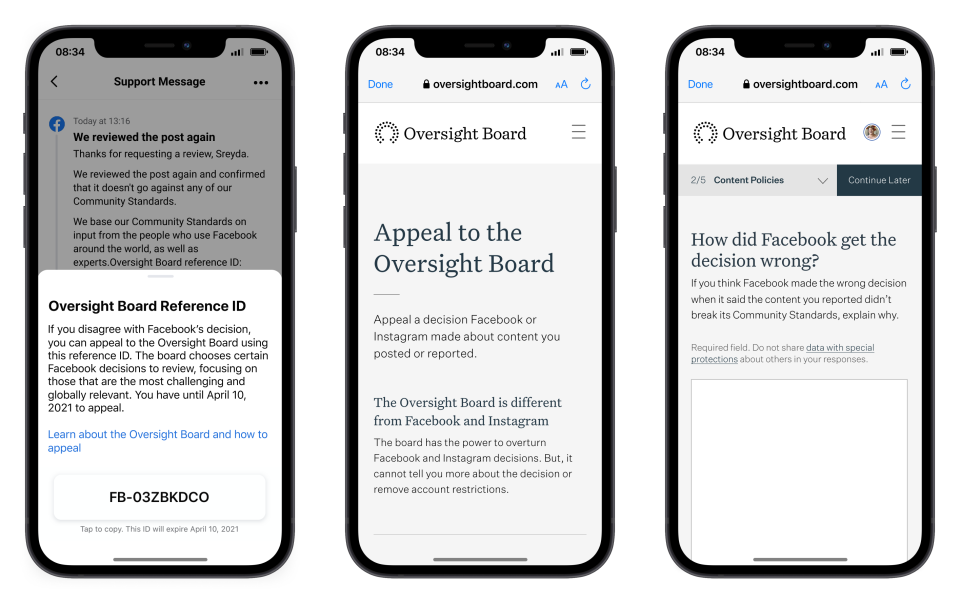Note: For future Facebook updates about Oversight Board cases, please visit the Transparency Center.
Starting today, people who use Facebook and Instagram now have the ability to appeal other people’s content that has been left up to the Oversight Board. Since October 2020, if content was removed from Facebook or Instagram and a user disagreed with Facebook’s re-reviewed decision to keep it down, that content was eligible for final appeal to the Oversight Board. Today’s announcement represents an expansion of the board’s initial scope. As originally contemplated by the Oversight Board’s bylaws, the board can now review Facebook’s decision to leave content on the platform — content eligible for appeal to the board still includes posts/statuses, photos, videos, comments, and shares.
As with all Facebook products, we will be rolling out the ability to appeal content left up to the Oversight Board to people across the world in waves to ensure stability of the product experience for users. We expect everyone on Facebook and Instagram to be able to appeal content left up over the coming weeks.
We will continue to work to expand the board’s scope over time and we will provide further updates as we do so.
How to Report Content That’s Been Left Up
If someone does not think that a piece of content should be on Facebook or Instagram, they first need to report the content to Facebook. Our Help Center explains how to do this for various types of content.
If Facebook decides to keep the content up even after review, the reporting person will receive an Oversight Board Reference ID in their Support Inbox and from there can appeal Facebook’s decision to the Oversight Board.
Considerations and Complications
While review of left-up content is an important piece of the oversight puzzle, there were a number of challenging technical and operational considerations we had to consider in the initial instance.
Foremost, we had to guarantee that everything would be done effectively and in a privacy-conscious manner. We had to consider, for example: how best to capture content at the time of appeal, in case the original poster edits the content later before review by the board? How should we group appeals by multiple users on a single piece of content even if there are different reasons identified to remove the content by those reporting it? Should we stop appeals of the same content to the board if the case is rejected, or allow additional appeals to reach the board? If the board selects a case, when should we stop allowing people to appeal that content — once selected, once a decision is being drafted, or after it is issued? How do we enable the board to sort through a larger volume of cases in an efficient way?
Allowing Multiple Reports for the Same Piece of Content
Content is often reported by multiple people, many of whom also want to appeal to the Oversight Board. We’ve structured the appeal process to accommodate these scenarios. In order to guarantee each reporting user’s voice is heard, multiple people will be able to report the same piece of content — and will be able to do so citing different reasons.
This means that, regardless of whether or not someone else has reported a piece of content, people may still appeal to the board and make the case for why this content should be removed.
In order for the Oversight Board to manage this, multiple reports will be compiled into a single case file for the board. This case file will exist for each piece of content that has been appealed to the board. Even if the board decides not to hear a case on a particular piece of content, other users may still appeal that same content, so their own voice can be heard on the matter.
Furthermore, if the board does take up a case, other users will be able to submit statements to the board, up until the board begins deliberations.
Privacy
To protect the privacy of those appealing to the board, the board will only include details that could easily identify a reporter in the board’s written explanation if the reporter has given permission to do so. To learn more about the steps that are taken to remove details that can easily identify reporters and others, refer to the data policy.
User Communication
Finally, we want to make sure all relevant parties are informed on the latest status of a given piece of content.
Once the board decides to take a case regarding content that is left up, we will inform all users who have reported the case to the board by updating the case status in the Oversight Board website portal.
We will also inform the original poster: when their content has been submitted to the board; if the board has decided to hear the case (at which point they will have the option to submit a statement to the board to provide further context around their content); and once the board has reached a decision.
What’s Next for the Board
The Oversight Board has already made a number of decisions and recommendations that have not only decided whether content stays down or is reinstated on Facebook but is already having a broader and significant impact on our content and enforcement policies and practices. We will continue to work to bring additional types of content into the board’s scope and will provide updates in the future.
We’re glad the Oversight Board is expanding their scope and impact, and look forward to their future decisions and recommendations.






